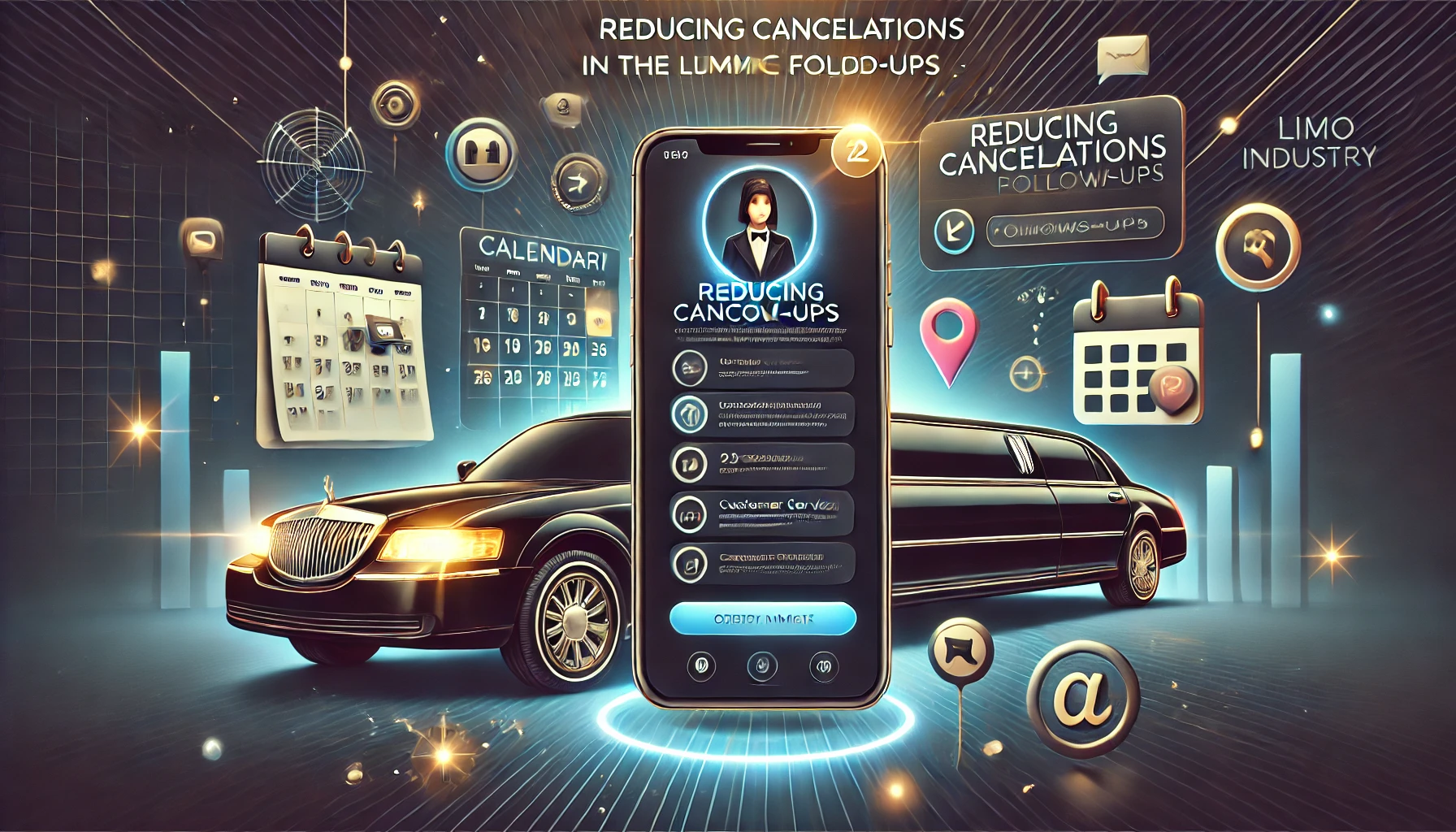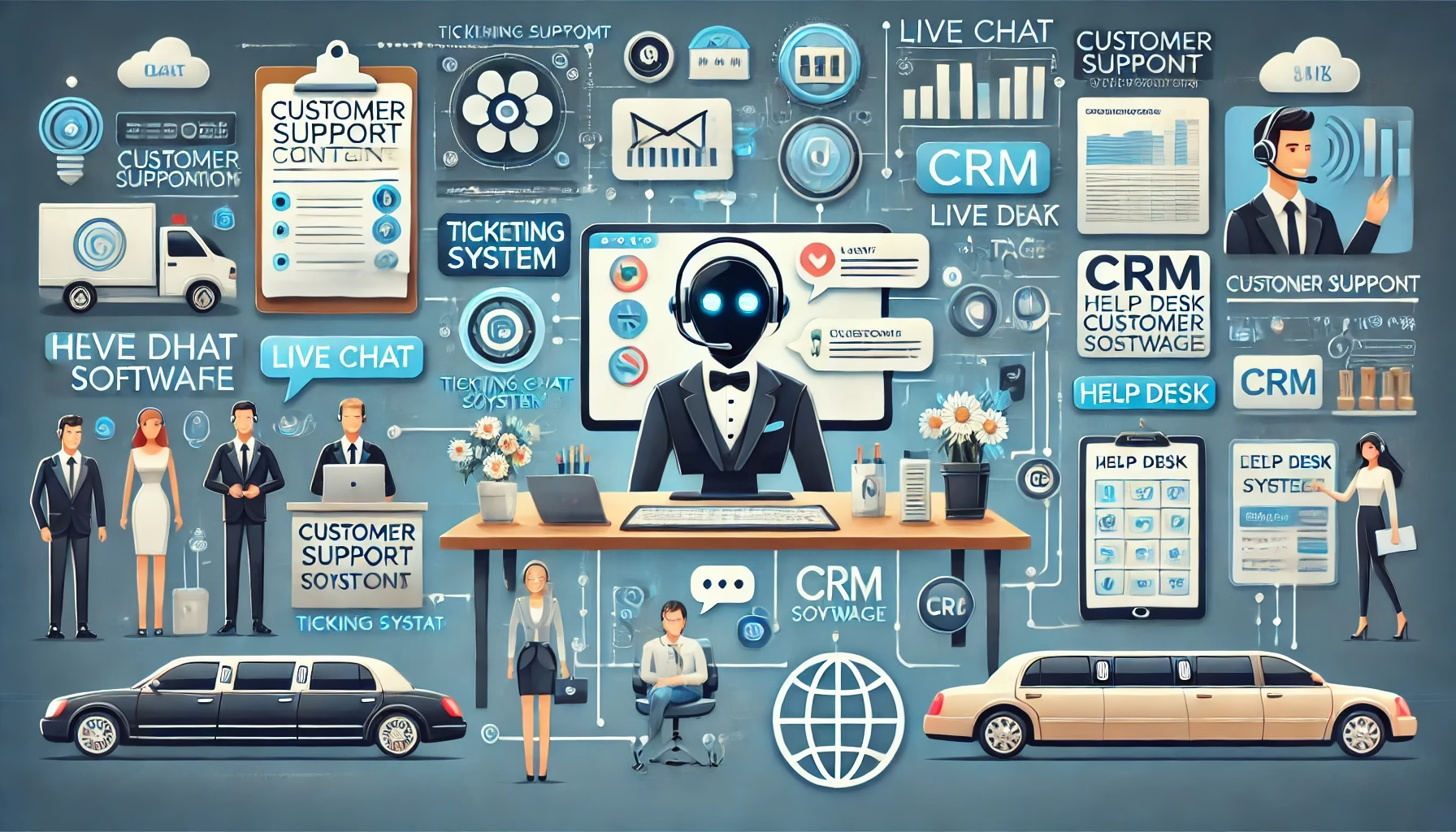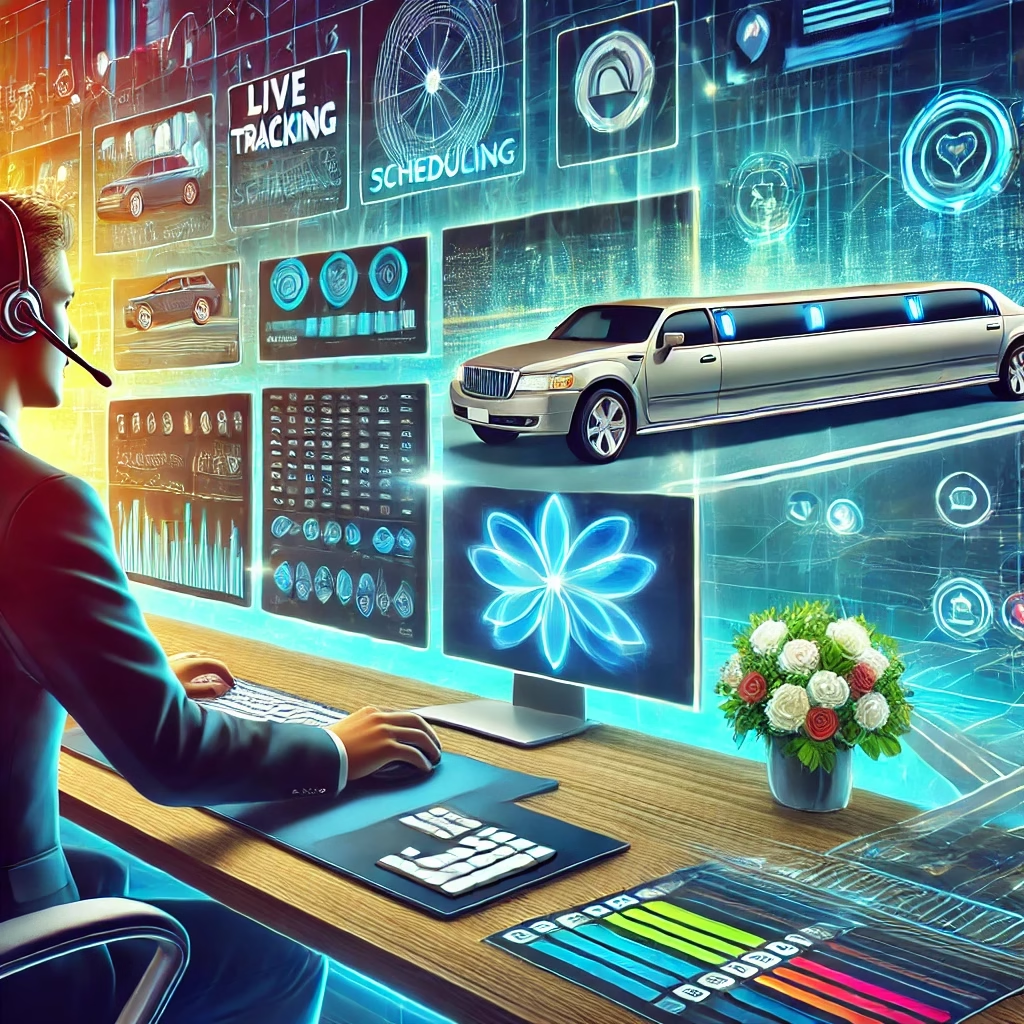1. Understanding Cancellations and No-Shows
Cancellations and no-shows represent significant challenges in the limo industry. These issues can stem from various factors, including poor communication, scheduling conflicts, or last-minute changes in plans. Understanding these underlying causes is crucial for implementing effective solutions.
To address these issues effectively, it is essential to gather feedback directly from customers about their experiences with cancellations. Conducting surveys can provide valuable insights into why customers decide to cancel or fail to show up. This feedback allows limo companies to identify patterns and specific concerns, enabling them to tailor their follow-up strategies to address these issues proactively.
2. The Role of Proactive Communication
Proactive communication is key to minimizing cancellations. When customers receive timely reminders about their upcoming reservations, they are more likely to remember and adhere to them. Effective communication helps reduce ambiguity and ensures that customers feel informed and prepared for their bookings.
Implementing a system for sending automated reminders via email or SMS can greatly reduce the likelihood of cancellations or no-shows. These reminders should be sent at strategic intervals—such as 24 hours and one hour before the scheduled pick-up—to reinforce the booking. By providing clear information, such as pick-up times and locations, limo companies can help customers feel more confident in their plans and less likely to cancel.
3. Personalizing Follow-Ups
Personalization fosters a connection between the customer and the service provider. When customers feel valued and recognized, they are less likely to cancel their bookings. Tailoring follow-ups to individual customers can make them feel more engaged and enhance their overall experience.
Using customer data to personalize follow-up messages can significantly impact retention rates. Addressing customers by name, referencing their previous bookings, and expressing appreciation for their loyalty creates a more meaningful interaction. For instance, if a customer frequently uses your service for airport transfers, acknowledging that in your communications can reinforce their decision to book with you again.
4. Offering Flexible Cancellation Policies
Rigid cancellation policies can discourage customers from committing to bookings. By providing flexibility in your policies, you can build trust and encourage reservations. A more accommodating approach can lead to increased customer satisfaction and loyalty.
Consider implementing a grace period for cancellations, allowing customers to change their minds without penalty up to a specific time before their booking. This policy can help alleviate the pressure customers may feel when making a reservation. Clear communication about your cancellation policy can help manage expectations and reduce last-minute cancellations, as customers will know they have options should their plans change.
5. Utilizing Technology for Customer Engagement
Technology can streamline follow-up processes and enhance customer engagement. Utilizing a customer relationship management (CRM) system allows for better tracking and management of customer interactions, enabling limo companies to engage with customers more effectively.
Investing in a robust CRM platform can facilitate automated follow-ups, monitor customer preferences, and analyze booking patterns. By using data analytics, you can identify trends and tailor your follow-up strategies accordingly. For example, if you notice that specific customers tend to cancel at a certain time, you can reach out with personalized offers or reminders that may entice them to stick to their plans.
6. Building Strong Customer Relationships
Cultivating strong relationships with customers can lead to higher retention rates. Customers who feel a sense of loyalty and connection to your service are less likely to cancel their bookings. Establishing rapport and trust can significantly enhance customer satisfaction.
Encouraging regular engagement through newsletters or special offers can help reinforce these relationships. Consider sending periodic updates about new services, promotions, or events that may interest your clients. Recognizing special occasions, such as birthdays or anniversaries, can also enhance the personal touch and make customers feel valued, ultimately encouraging them to remain loyal.
7. Training Staff for Effective Follow-Ups
Your staff plays a crucial role in customer interactions. Proper training ensures that team members are equipped to handle follow-up communications effectively. Well-trained employees can enhance the overall customer experience, making clients feel valued and understood.
Providing training programs focused on communication skills, customer service etiquette, and the importance of follow-ups is essential. Regular assessments of staff performance can ensure they meet customer engagement standards. Encourage staff to personalize interactions and go the extra mile in addressing customer inquiries, as this can significantly influence the customer’s decision to follow through with their bookings.
8. Analyzing Cancellation Trends
Understanding cancellation trends helps identify patterns that can inform follow-up strategies. By analyzing data on cancellations and no-shows, you can determine peak times for these occurrences and adjust your approach accordingly.
Regularly reviewing booking and cancellation data is crucial for identifying underlying issues. Use analytics tools to visualize trends, which allows you to adjust your follow-up approach based on real-time insights. For example, if you notice a spike in cancellations during a specific season or event, you can proactively reach out to customers with additional reminders or incentives to confirm their bookings.
9. Creating a Customer Feedback Loop
Establishing a feedback loop allows customers to express their concerns about your service. When customers know their opinions matter, they are more likely to remain loyal and engaged. Creating opportunities for feedback demonstrates your commitment to customer satisfaction.
Encourage customers to provide feedback after their ride through surveys or follow-up calls. This can provide valuable insights into their experiences and highlight areas for improvement. By acting on this feedback, you can address concerns and implement changes that enhance the overall customer experience, ultimately reducing cancellations and no-shows.
10. Addressing Industry Challenges
The limo industry faces unique challenges, including increased competition and changing customer preferences. Adapting to these challenges requires strategic thinking and a willingness to evolve.
Staying informed about industry trends and shifts in customer behavior is essential for remaining competitive. Attend industry conferences, participate in forums, and collaborate with other businesses to share best practices. By staying ahead of the curve and continuously adapting your strategies, you can better meet customer needs and minimize cancellations.
Conclusion
Minimizing cancellations and no-shows in the limo industry requires a multifaceted approach. Proactive customer follow-ups can significantly impact your bottom line. By understanding customer behavior, leveraging technology, and fostering strong relationships, you can create a more reliable booking experience. Implementing these strategies will not only reduce cancellations but also enhance customer loyalty, ultimately driving your business’s success.
Home | About Us | Pricing | Get Started | FAQ | Dispatch Daily | Contact Us
WhatsApp | Facebook | LinkedIn





Leave a Reply